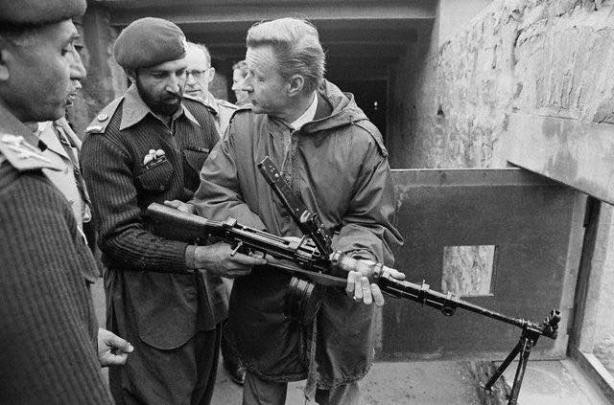I may say quite an obvious thing, but China appears to be heading towards a major crisis. The economic growth that they’ve been experiencing for the last couple of decades (which, by the way, is slowing down rapidly) has its own downsides in countries with large populations. Social segregation is one of them.

Just to give you an abstract example, imagine a small Chinese town with a population of, say, 1 million people. The town becomes prosperous enough to allow every citizen to consume a proper beef steak for dinner at least once a week. In order to keep up with the demand, you have to produce hundreds of thousands of cows. Cattle requires pastures of enormous sizes, hundreds and hundreds of millions of litres of water to irrigate it all, then you have to produce fertilisers, transport it all, pay for logistics, infrastructure maintenance, employ millions of people to maintain it all, and these people need to eat something too, so, when you talk about everything needed to produce rice in quantities sufficient to meet the demand, the numbers will grow exponentially. Don’t forget that resources, both human and natural, are limited, so you can’t maintain a steady economic growth for too long. And even then, people who have to survive on rice to produce beef for the rich aren’t going to stay too happy for long. If you going to cut the beef production, you’re not going to meet the demand, which will cause an additional bunch of problems, as people don’t like it when their life quality (including the quality of food they eat) decreases. The changes in life quality are only welcome when they go up. The opposite direction causes social unrest…
So, the system naturally becomes unstable, creating a risk that everything will just burst into a bloodbath civil war (the Chinese history, pretty much, consists of these cycles when you end up with tens of millions dead at the end of each dynasty rule).

China has been approaching its socio-economic limit (also, don’t forget that it’s been happening with the global economic recession in the background). The Occupy Hong-Kong protests that we saw last year is one of the earlier manifestation of such deep, systemic issues (additional issue for China here is that, these days, natural protests are easily hijacked by geopolitical competitors, who have rich experience in artificially worsening such things).
 Chinese historians and sociologists are, of course, aware of this. Over the recent years the government has been setting up multiple research centres all across the country to study the fall of the Soviet Union, to learn from its mistakes and to avoid repeating its faith (Russia was lucky in a way that the disintegration was happening at its periphery back during the late 1980s and the 1990s; if the same thing happens China, they are going to get it across their core).
Chinese historians and sociologists are, of course, aware of this. Over the recent years the government has been setting up multiple research centres all across the country to study the fall of the Soviet Union, to learn from its mistakes and to avoid repeating its faith (Russia was lucky in a way that the disintegration was happening at its periphery back during the late 1980s and the 1990s; if the same thing happens China, they are going to get it across their core).
At the same time, it appears that the Chinese are trying to solve their internal issues by expanding their economic and geopolitical influence over the globe (it’s a very capitalist thing to do). China has been very enthusiastic in investing into Africa, trying to stabilise the Middle East (that’s where Russian and Chinese interests match almost perfectly, by the way), then developing what has been termed the “New Silk Road”, and so on.
If you want to build up and maintain your geopolitical influence, you have to have proper military capabilities, accordingly. So we’ve seen China creating artificial islands in the South China Sea where it creates airbases, and stuff.

No wonder the US neocons are getting frustrated, with all the influence America has been loosing (also, don’t forget Russia asserting its interests in the Middle East for the first time since the fall of the USSR, using airforce to conduct airstrikes in Syria, launching ballistic missiles against ISIS from the Caspian sea, and doing all sorts of amusing stuff).
The world appears to be getting multi-polar once again.
Interesting times we live in.

